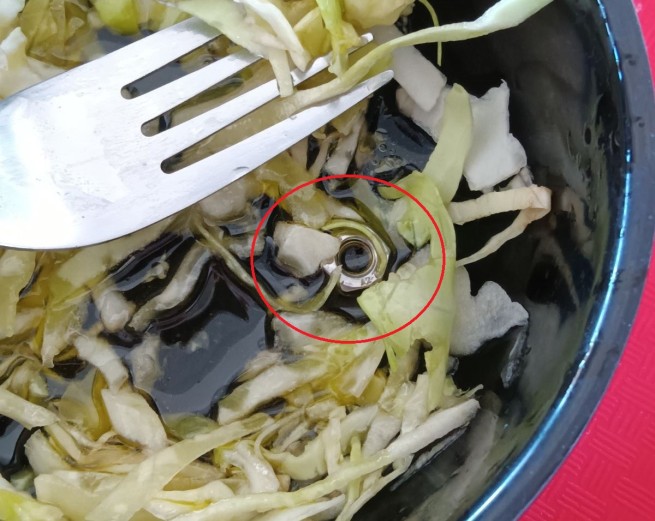CNN’s Sandy LaMotte visited Greece “after a long stagnation” and unable to travel due to the lockdown and the pandemic, and headed straight for the Greek islands as soon as the opportunity presented itself.
The reporter decided to explore the islands and find out if the photos of Santorini really correspond to reality (that the bright blue sea and sky are not photoshop), as well as try the Mediterranean dishes, which she had heard a lot about. When she returned, she enthusiastically wrote about what she saw and tried in our country.
“I decided to try the ‘Mediterranean diet’ in one of its countries of origin. This is an award-winning healthy eating style that I have written about for many years as a health journalist. I was going to see, smell, taste and photograph many products based on recipes passed down through the centuries by Greek grandmothers to their grandchildren. Will the food look so delicious and so healthy? My answer is yes! ”Writes Sandee LaMotte enthusiastically.
A CNN reporter then describes which restaurants in the Greek islands she visited to dine, which dishes she tried, and they impressed her.
At Nostos Sea Food on Milos, she tasted “dolma, mini cabbage rolls wrapped in grape leaves, a delicious snack stuffed with shrimp and creamy lemon sauce.”
The traveler also liked the milk pie (γαλατόπιτα), decorated with pistachios from Aegina. “The chef managed to give me the impression that I was in a 4-star restaurant,” a foreign reporter praises the culinary art.
In Santorini, she visited 18 Degrees, where she was impressed with a spinach pie “which was not at all like the one I tasted in the US.”
And of course, the praises went to the “Greek salad”. “It was a revelation,” La Motte writes, colorfully describing the feta salad, and concludes: “No wonder the Greeks say that feta can be combined with anything.”
Her favorites also include grilled vegetables with olive oil, sesame seeds and herbs.
Benefits of the Mediterranean lifestyle
Describing the dishes, special attention was paid to the king of the Mediterranean diet – olive oil. Talking about how the product is related to the Greek diet, the reporter notes: “Olive oil is so inseparable from the diet in Greece that if the locals think someone is a little crazy, they say that he is …“ losing oil ”(‘ ‘χάνει λάδια’ ‘).
LaMott cites the scientific evidence for the Mediterranean diet:
“Scientists believe that olive oil may be one of the reasons why the Mediterranean diet is so good. One study after another has shown that a Mediterranean diet can reduce the risk of diabetes, high cholesterol, the risk of Alzheimer’s disease, memory loss, depression and breast cancer, and is linked to stronger bones, a healthy heart, and longer life expectancy. Oh, and don’t forget about losing weight! ”Says the reporter.
“The Mediterranean diet is based on traditional foods from 21 countries that surround the Mediterranean, but there is one thing in common. It is based on simple cooking (minimal cooking) and consists of fresh vegetables and fruits, whole grains and legumes. At the same time, great attention is paid to extra virgin olive oil.
Say goodbye to sugar and flour, except in rare cases. Fats other than olive oil, such as butter, are rarely, if ever, consumed. Red meat may rarely appear, usually just to add flavor to a dish. “Instead, meals can include eggs, dairy and poultry, but in much smaller portions than the traditional American diet. Fish, however, is the staple food. ”
LaMott was impressed by the fact that in Greece the fish is served not as fillets, but as a whole: “It must be a little scary at first when they put fish with a head and a tail in front of you on a platter. into yourself and understand from what edge to take it. “
“The Mediterranean cuisine is dominated by herbs and spices rather than salt and pepper. Fresh herbs are so important that the Greeks grow them on every corner. In Athens, I saw pots of herbs on windowsills, on sidewalks next to parked cars, and at the foot of trees along the streets, ”says the reporter.
And “for sweet”
“Fruit is the basis of the dessert here. After eating, local residents prefer to eat a slice of fruit (watermelon or melon), rather than baklava and other sweets. At the restaurant, I saw a family order a dish with fruit and watermelon as a birthday cake, ”the foreign woman never ceases to amaze, summing up: the Mediterranean“ diet ”is much more than just food. It is based on movement, such as walking, cycling or gardening, as well as eating healthy and spending time with friends in a company or close family circle.
After visiting Greece, the reporter said that she would definitely come here again.






More Stories
Low wages and inflation "drown" Greek youth
Greece becomes a 'safe haven' for German pensioners
Bark Air: New airline specializing in pet transportation launches in May